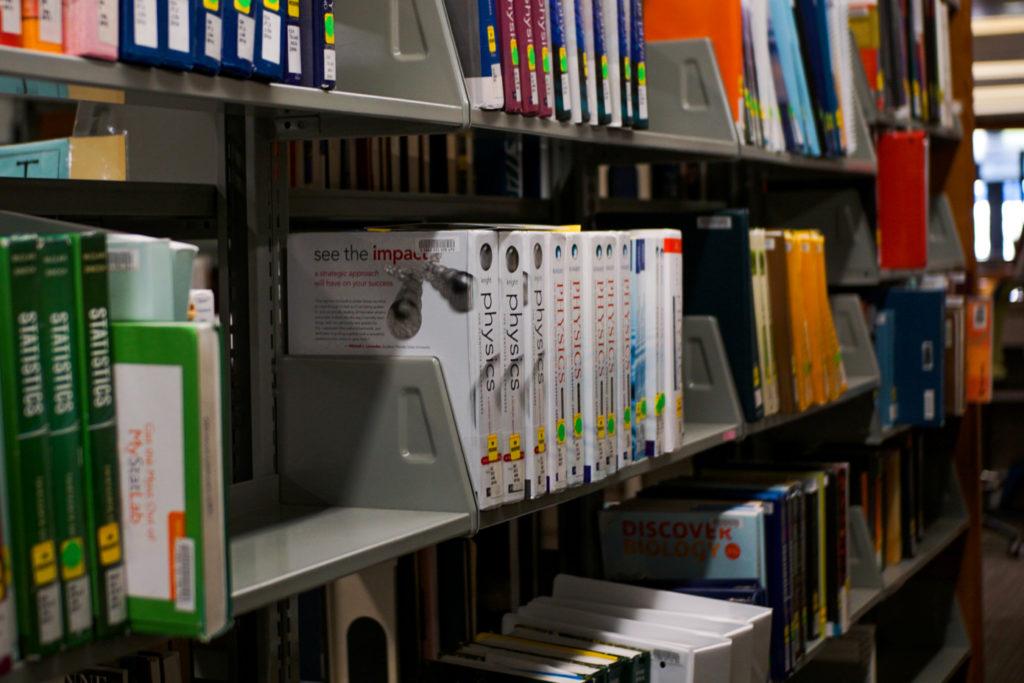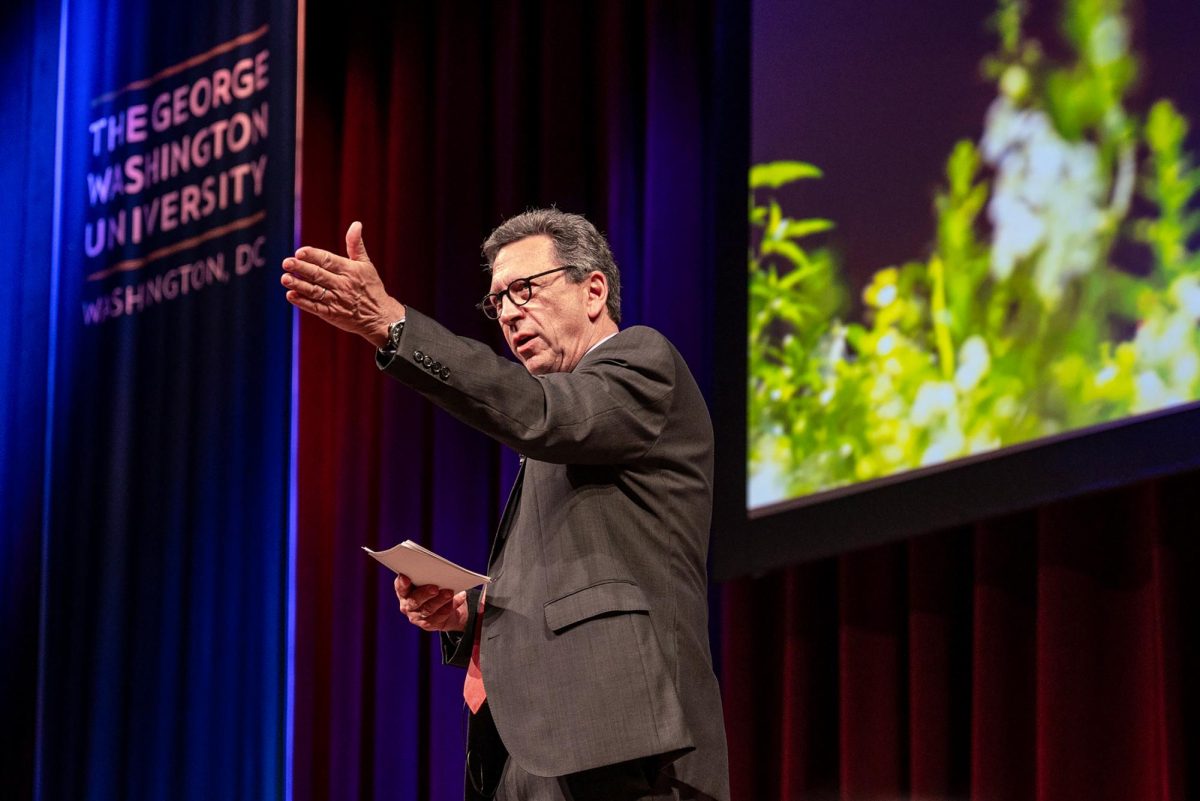GW awarded grants to faculty who will replace their required, commercial course materials with free, open-source academic resources last week as part of a University-wide effort to lower the cost of textbooks.
GW Libraries launched the Adapting Course Materials for Equity Faculty Grant earlier this semester before awarding grants ranging from $250 to $1000 last week to eight professors who will switch to free, open-source materials, like online textbooks, for courses taught between fall 2022 and fall 2023. Officials said the adoption of free, open-source materials through the grant program will make courses more accessible and alleviate students’ financial burden.
Geneva Henry, the dean of libraries and academic innovation, said in an interview in February that the grant program will provide students with greater access to materials they need to succeed in their courses, like textbooks and lab manuals.
“Having materials be open access does enhance equitable access to the course materials because it lowers that barrier cost,” she said.
The yearly cost of course materials for undergraduate students is about $1,400, according to GW’s financial aid website. The University is lowering the cost of course materials for students through GW Campus Store’s textbook buy back program, which allows students to sell their used textbooks to the campus store where students can also purchase the donated textbooks at lowered costs.
Henry said officials formed a committee made of staff like librarians, a faculty member and a student to review the grant applications, where applicants outlined plans to adopt free, open-source materials for their courses.
“The things they’re going to be looking for, for successful candidates, are the potential cost savings to students, the impact on student learning and success and then the potential contributions to inclusive teaching practices and materials,” she said.
The program awards faculty members up to $500 for adopting open-source materials, like digital textbooks available through GW Libraries or other “freely available digital materials.” The program also awards faculty members up to $1,000 for adopting existing, open-source materials for their course or for creating new open-source materials, like online learning modules.
“We recognize that it’s also a barrier to access to information which is what we’re all about in Libraries,” Henry said. “So we have been promoting for a very long time, the adoption of open education resources to increase affordability for our students.”
Henry had said she hopes the grant program would receive enough applications from faculty members and funding from the University to continue into future academic years.
“If the first round of grants are successful, we’re hoping that we get enough funding to run it again next year,” she said.
Alexa Alice Joubin, a professor of English, said she received a grant after applying with a proposal to create a free, open-source website to replace the three textbooks for her Shakespeare, Race and Gender on Film course. She said her website will include learning modules on film analysis and use the Folger Shakespeare Library’s programming software to link scenes from film adaptations of William Shakespeare’s plays to the text of his plays.
“It’s not a stand-alone, self-study resource, but when used in a course like mine, or someone else can also take advantage of it, it will become very instructive,” she said.
Joubin said she will use the money from the grant to cover the costs of the website, pay the student who will help develop the site and pay the copyright fees for the scenes from the films discussed in her course.
“In my research, no such resource exists in the world,” she said. “So this would be a great contribution, not just into saving GW student’s money, but actually allowing people a new way to learn.”
Eugene Montague, an associate professor of music and a recipient of the grant, said he applied to the program with a proposal to adapt an existing open-source textbook and create audio, text and image-based materials for his Elements of Music Theory course.
“I plan to create original materials to engage with topics that are sometimes little discussed in existing open-source textbooks such as texture, timbre and acoustics,” he said in an email.
More than half a dozen professors said they weren’t aware of the grant program, but some have already taken their own steps to make required materials for their courses more affordable and alleviate students’ financial burden.
Antwan Jones, an associate professor of sociology, Africana studies and epidemiology, said he was not aware of the grant program, but it is a “wise University investment” to incentivize faculty members to switch to zero-cost, open-source course materials. He said he replaced the required, commercial textbook for his Social Research Methods course with a zero-cost, open-source textbook.
“As a professor who sees this problem, I have two options – I can either contribute to its perpetuation, or I can do something that would economically level the playing field for students in my courses,” he said.
Kim Roddis, a professor of engineering, said although she did not apply for a grant, she worked with the civil and environmental engineering department chair to buy course-required textbooks to lend to students with the financial support of alumni.
“A few years ago, I worked with my department chair to have multiple copies of the book purchased by the department at the discounted price,” she said in an email. “We now check out by semester copies to the students for their use.”








